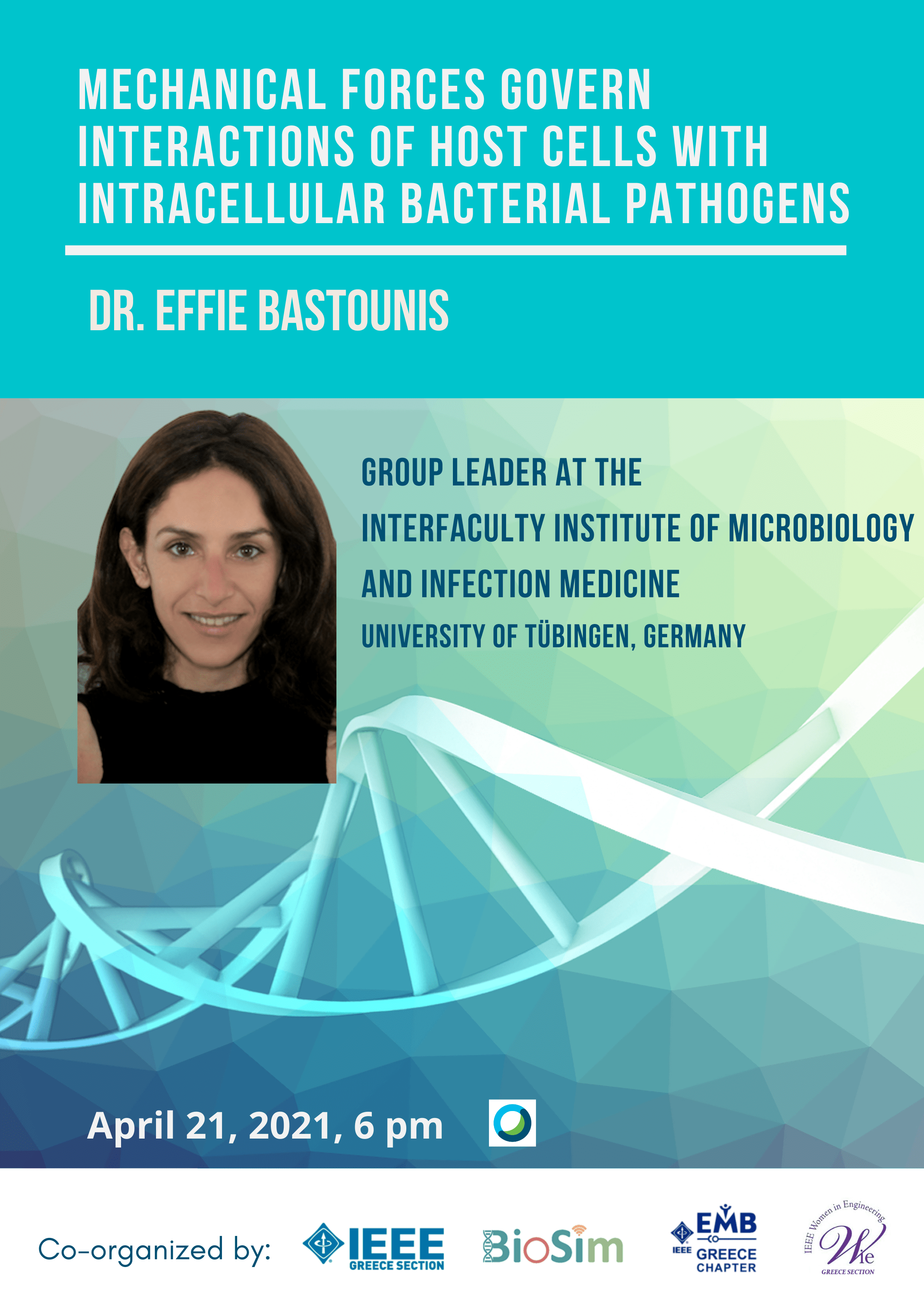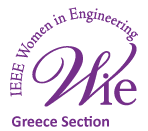Mechanical forces govern interactions of host cells with intracellular bacterial pathogens
The IEEE Greece Section in cooperation with the IEEE Engineering in Medicine and Biology (EMB) Greece, the Women in Engineering (WiE) Greece, and the Biomedical Simulations and Imaging (BioSim) Laboratory of the School of Electrical and Computer Engineering, National Technical University of Athens invite you to the online lecture entitled “Mechanical forces govern interactions of host cells with intracellular bacterial pathogens” which will be given by Dr. Effie Bastounis, Junior Group Leader in the Interfaculty Institute of Microbiology and Infection Medicine at the University of Tübingen, Germany, on Wednesday, 21 April 2021, at 6 pm.
Abstract: To combat infectious diseases, it is important to understand how human host cells interact with bacterial pathogens. Signals conveyed from pathogen to host, and vice versa, may be chemical and mechanical. While the chemical and molecular basis of host-pathogen interactions has been extensively explored, relatively less is known about mechanical signals and responses in the context of those interactions. Nevertheless, a wide variety of bacterial pathogens appear to have developed mechanisms to alter the cellular biomechanics of their hosts in order to promote their survival and dissemination, and in turn many host responses to infection rely on mechanical alterations in host cells and tissues to limit the spread of infection.
In this talk Dr. Bastounis will present her team’s recent findings on how mechanical forces generated by host cells can promote or obstruct the dissemination of intracellular bacterial pathogens. In addition, she will discuss how in vivo extracellular mechanical signals influence interactions between host cells and intracellular bacterial pathogens. During the presentation Dr. Bastounis will highlight bioengineering-inspired tools and techniques that can be used to measure host cell mechanics during infection, and the findings that will be presented, underline the importance of interrogating both mechanical and chemical signals while studying host-pathogen interactions and suggest that such approaches can both reveal novel virulence mechanisms and also provide new insight into host cell and tissue mechanobiology.
Biography: Dr.Bastounis grew up in Athens, Greece and earned her B.S./M.Sc. in Electrical and Computer Engineering from the National Technical University of Athens (NTUA) in 2007. She pursued her Ph.D. in Bioengineering at UC San Diego making seminal contributions in the cell motility field by shedding light into mechanics that power cell migration. She then joined the Biochemistry Department at Stanford University School of Medicine, to study how mechanical forces dictate the interactions of human host cells with bacterial pathogens as an American Heart Association (AHA) postdoctoral fellow. She then moved to the Biology Department at the University of Washington where she continued developing rigorous and reproducible culture-based methods to investigate host-pathogen interactions, drawing on biophysical, cell biological and computational approaches.
If you are interested to participate, please fill the application form and submit it by 20/4/2021.


